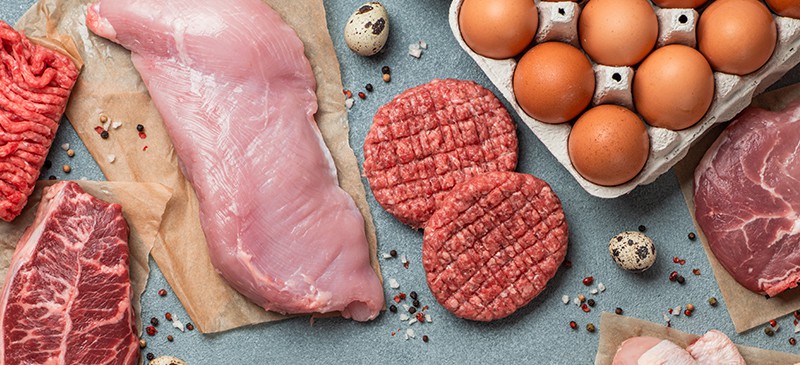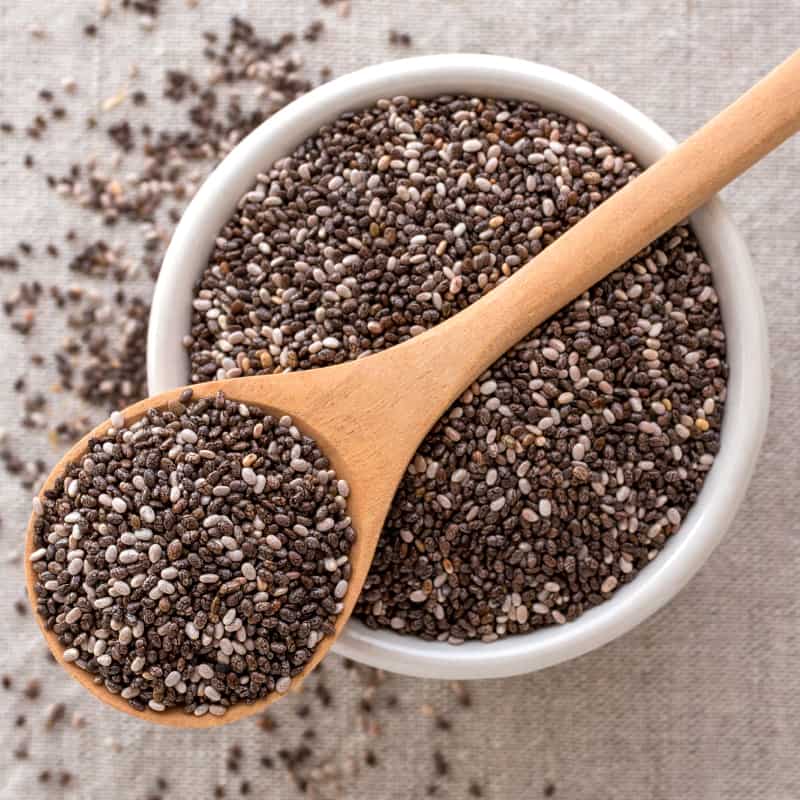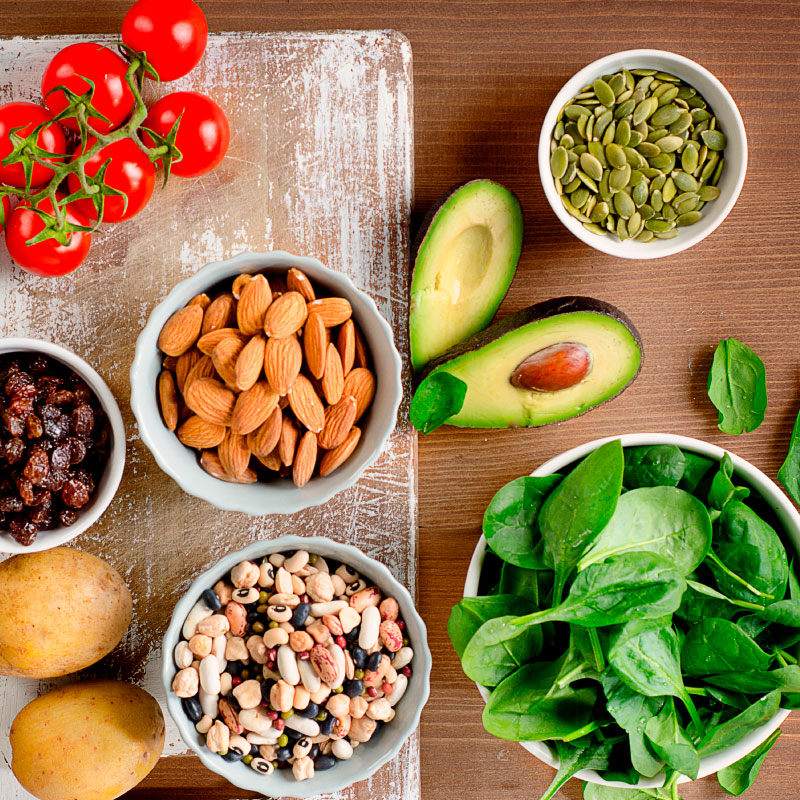This Dr. Axe content is medically reviewed or fact checked to ensure factually accurate information.
With strict editorial sourcing guidelines, we only link to academic research institutions, reputable media sites and, when research is available, medically peer-reviewed studies. Note that the numbers in parentheses (1, 2, etc.) are clickable links to these studies.
The information in our articles is NOT intended to replace a one-on-one relationship with a qualified health care professional and is not intended as medical advice.
This article is based on scientific evidence, written by experts and fact checked by our trained editorial staff. Note that the numbers in parentheses (1, 2, etc.) are clickable links to medically peer-reviewed studies.
Our team includes licensed nutritionists and dietitians, certified health education specialists, as well as certified strength and conditioning specialists, personal trainers and corrective exercise specialists. Our team aims to be not only thorough with its research, but also objective and unbiased.
The information in our articles is NOT intended to replace a one-on-one relationship with a qualified health care professional and is not intended as medical advice.
Is the Carnivore Diet Healthy? Benefits vs. Risks
October 10, 2024

Loading up on endless amounts of beef, bacon and chicken may sound like every meat lover’s dream, but is eating only meat as part of the “carnivore diet” healthy?
Although this diet continues to trend on the internet — including convincing carnivore diet before and after photos and rave reviews from proponents of the plan — health experts say negative effects of the diet may outweigh any potential benefits.
Not only is there little to no carnivore diet science available to support the plan, but the diet is also incredibly restrictive, difficult to follow and likely to lead to nutritional deficiencies in the long run.
What is the carnivore diet?
As its name may imply, the carnivore diet is an all-meat diet that consists almost entirely of animal products like red meat, fish and poultry. In social media land, this diet also goes by the name of the lion diet.
Fruits and veggies are off-limits on this meat-only diet, along with other foods, such as nuts, seeds and grains. Some other products, such as eggs and dairy, may be permitted, although some advise limiting foods high in lactose, such as milk, cheese and yogurt.
The related animal-based diet is more flexible than the carnivore diet, and includes most dairy products as well as fruit and honey, for example. It’s considered to be much higher in vitamins and minerals than the carnivore diet.
The carnivore diet is based on the idea that our ancestors ate limited amounts of carbs and consumed a diet primarily composed of meat instead. However, unlike other similar low-carb diets, such as the Paleo diet, the carnivore diet eliminates foods containing carbohydrates completely.
Foods to eat
Compared to other eating patterns and fad diets, the carnivore diet menu is pretty straightforward. Meat, fish, poultry, eggs and certain dairy products are allowed, and most other foods are eliminated.
Here are some of the top foods that can be included as part of a carnivore diet shopping list:
- Meat: beef, pork, lamb, veal, bison, offal
- Seafood: salmon, tuna, mackerel, anchovies, codfish
- Poultry: chicken, turkey, goose, duck
- Eggs and egg whites
- Dairy Products: low-lactose foods like hard cheeses and butter; also A2 milk
- Beverages: water, bone broth
Foods to avoid
Here are some of the ingredients that should be avoided as part of the carnivore diet:
- Fruits: apples, bananas, oranges, berries, pears, peaches, plums, etc.
- Veggies: broccoli, cauliflower, spinach, kale, zucchini, tomatoes, bell peppers, etc.
- Legumes: chickpeas, kidney beans, black beans, lentils, pinto beans, etc.
- Nuts: almonds, walnuts, macadamia nuts, pecans, cashews, pistachios, etc.
- Seeds: chia seeds, flaxseeds, pumpkin seeds, hemp seeds, sunflower seeds, etc.
- Grains: amaranth, quinoa, wheat, buckwheat, rice, oats, barley, pasta, etc.
- Most dairy products: high-lactose foods like milk, yogurt, soft cheeses, etc.
- Processed and ultra-processed foods: chips, crackers, cookies, candy, convenience meals, fast food, etc.
- Beverages: tea, coffee, sports drinks, sodas, energy drinks, etc.
- Sugars: table sugar, brown sugar, honey, maple syrup, etc.
Does the carnivore diet help you lose weight?
One of the top carnivore diet benefits is that it eliminates high-carb, heavily processed ingredients, many of which are also high in calories. Decreasing your intake of these calorie-dense foods, such as chips, candy, crackers and cookies, could potentially help promote weight loss.
While research on the carnivore diet specifically is limited, several studies have found that low-carb diets are effective for weight loss.
For example, a review published in British Journal of Nutrition showed that following a very low-carb diet was able to boost long-term weight loss in participants compared to a low-fat diet, suggesting that cutting carbs could be a useful strategy to combat obesity. Meanwhile, another study found that low-carb diets high in red meat, poultry and/or fish were associated with significant weight loss after one month.
In addition, adults who consume a carnivore diet frequently self-report weight loss while following the diet, according to research published in 2021.
It’s important to note that the type of meat consumed is vitally important when it comes to weight loss on the carnivore diet. A 2022 study, for example, found that higher consumption of processed meat “may be associated with greater weight regain” and increases risk factors for cardiometabolic health.
On the flip side, a randomized, controlled trial published in 2022 in the American Journal of Clinical Nutrition determined that consuming unprocessed red meat can support weight maintenance.
Potential benefits
There remains limited research and studies regarding the carnivore diet, so it’s challenging to list the potential benefits (besides weight loss, see above). However, based on what kinds of foods are included versus excluded, some conclusions can be drawn.
Foods high in sugar are eliminated, such as sugar-sweetened beverages, baked goods, candies and desserts. Added sugar can have detrimental effects on nearly every aspect of health, with some research linking added sugar consumption to an increased risk of obesity, heart disease, liver problems and even cancer.
Therefore, eliminating these foods from your diet could potentially reduce the risk of developing chronic disease to support overall health. You may experience reduced belly fat and better heart health. How long such benefits last is unknown.
Meanwhile, the carnivore diet is composed mostly of high-protein foods, such as fish, eggs and poultry. Protein plays a central role in tissue repair, muscle-building, growth and immune function.
High-protein diets have also been shown to enhance weight loss and reduce levels of ghrelin — the hormone that stimulates feelings of hunger — help curb cravings and keep your appetite in check.
At the same time, because the diet is literally bankrupt of vegetables and minerals, it’s missing many key nutrients that humans need for good health. For example, without plant-based nutrients, it’s nearly impossible to get enough vitamins A and C or fiber.
While lowering carbohydrates to such a drastic level may help control blood sugar levels (and control diabetes), in general it’s advisable to consume some high-fiber carbohydrates to prevent spikes in blood sugar — but those foods are removed in this diet.
Common risks
Currently, no research has been conducted to evaluate the long-term effects of the carnivore diet. Therefore, it’s difficult to determine how much of an impact eating only animal protein, eggs and limited dairy may have on your health and whether or not following the carnivore diet results in any real benefits.
That being said, such a restrictive diet poses several health risks. They include:
May cause nutritional deficiencies
Overall, the carnivore diet is very restrictive and eliminates several important food groups, including fruits and veggies. Therefore, it should not be followed long term, as it can increase the risk of nutritional deficiencies and health problems.
These nutritional deficiencies can lead to serious side effects, like decreased energy levels, brain fog and impaired immune function.
Missing key micronutrients
This diet eliminates several important food groups that supply key micronutrients, including a range of vitamins and minerals. For example, the carnivore diet is very low in vitamins C and A, potassium, magnesium and folate because these nutrients are primarily found in fruits and vegetables.
Low in fiber
Speaking of key nutrients that the carnivore diet is missing, it’s also very low in fiber. This important nutrient promotes digestive health, regularity, heart health and more.
High in sodium, cholesterol and saturated fat
On the other hand, the carnivore diet plan is high in dietary cholesterol, saturated fat and sodium, all of which should be limited as part of a healthy diet. For example, a diet high in saturated fat can raise LDL (bad) cholesterol and raise the risk of heart disease.
Excessive red meat
The carnivore diet often includes high amounts of red meat and processed meat. Both have been linked to a higher risk of colorectal cancer. Eating too much red meat can also cause digestive issues (see below).
May cause digestive issues
Because it’s high in fat and low in fiber, the plan may cause digestive issues for some people. Similar to “keto flu,” a common side effect of high-fat diets like keto, it can cause loose stools or increased fat in the stool and is not a recommended diet for diarrhea. Conversely, it may also cause constipation due to the lack of fiber.
May cause kidney issues
High protein intake can lead to impaired kidney function, including potential kidney stones.
Not suitable for many people
Because the diet is so restrictive, it is not suitable for children or women who are pregnant or breastfeeding. It’s also not recommended for those with certain health conditions, including diabetes or kidney disease. If you have any underlying health conditions, consult with your healthcare professional before making any changes to your diet.
Can cause potential side effects
Potential side effects of the carnivore diet include:
- Increased cravings
- Low energy levels
- Bloating
- Impaired focus
- Nausea
- Irritability
- Headaches
Sample menu
Curious what a carnivore diet breakfast looks like and what meals can be enjoyed as part of the diet? Check out this sample three-day carnivore diet meal plan:
Day 1
- Breakfast: fried eggs and strip steak
- Lunch: large turkey burger
- Snack: salmon jerky with chicken bone broth
- Dinner: baked meatballs
Day 2
- Breakfast: turkey bacon with boiled eggs
- Lunch: beef liver
- Snack: aged, hard cheddar with sardines
- Dinner: salmon roasted in butter
Day 3
- Breakfast: scrambled eggs and turkey sausage
- Lunch: 2 to 3 pieces of chicken, with skin
- Snack: beef jerky with beef bone broth
- Dinner: lamb chops
Conclusions
- The carnivore diet is an eating plan that includes meat, fish and poultry. Other items permitted on the carnivore diet food list include eggs and small amounts of other dairy products.
- Fruits, veggies, legumes, nuts, seeds, grains and added sugars are all eliminated on the diet.
- Although there is no research available on the health and safety of the plan, it could potentially increase weight loss and benefit health by restricting added sugar and increasing protein intake.
- On the other hand, the diet is highly restrictive, which can increase the risk of nutritional deficiencies and health problems. It’s also high in saturated fat, sodium and cholesterol, all of which should be limited as part of a well-rounded diet.
- Enjoying a balanced diet rich in a variety of healthy whole foods is a better option to help meet your needs and improve your health.












